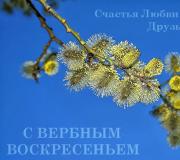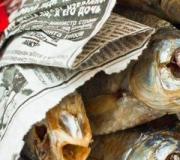Weekends in Hong Kong and information about the city. Hong Kong: public holidays, non-working days of banks, school holidays What impressed Hong Kong and useful information at the end
A trip to Hong Kong can be combined with holidays celebrated here, both traditional Chinese and those who came from the West. Traditional holidays in the Yueli lunar calendar do not have fixed dates.
The Chinese New Year of Chunjie (“spring festival”) falls on the first new moon of the first month of the year (January-February) and takes place on a large scale, colorful parades on the water and magnificent fireworks over Victoria Bay.
The Yuan Xiaojie Lantern Festival falls on the 15th day of the new year and is accompanied by the lighting of millions of lanterns.
Memorial Day Qingming or Taqingze (full moon of the third month, April) is a ritual day of commemoration of ancestors and the memory of fallen heroes, accompanied by ancient rituals.
The Duanwujie holiday is very colorful - the Dragon Boat Festival (the fifth day of the fifth month, June), during which the poet Wut Yuan is commemorated and boat competitions are held.
In August - September, Yue Lian is celebrated - the Festival of Wandering Spirits (the first day of the seventh moon), when, according to legend, the souls of the dead visit the world of the living.
Worship of the moon god takes place on the Moon or Harvest Festival of Zhongcujie (fifteenth night of the eighth moon, September), which is also considered the holiday of lovers and the day of remembrance of the uprising against the Mongol conquerors.
The birthday of the great philosopher Confucius (September 28) is also a national holiday.
Hong Kong regularly hosts the grandiose Mid-Autumn Festival and the honor of the fullest moon of the year, the world's largest exhibition of toys and games "Hong Kong International Toys and Games Fair" (January), one of Asia's largest Hong Kong Theater Festival (February - March).
Speaking of theater, be sure to visit the Canton Opera. As in the famous Peking Opera, much attention is paid to the spectacular side here. Statistically, mise en scenes allow the viewer to get to know each of the characters in detail, their appearance, character and role in the plot. But everything changes in a second - and now you have in front of you dexterous acrobats, sparkling bright colors and loud music that accompanies the action. Chinese drama is also of great interest, before the start of the performance it is advisable to familiarize yourself with the plot by reading the program. In any case, pleasure and good mood from the performance are guaranteed.






Catholic Christmas, Orthodox Christmas, the traditional New Year, and Chinese are celebrated here with pleasure. True, confusion sometimes arises, because the traditions of one part of the world are superimposed on the traditions and understanding of another. Hong Kong has an incredible mix of cultural traditions.
European New Year and Christmas
The European New Year and Christmas are celebrated here by not a very large group of people, although the city dresses up especially for tourists. In general, the locals never mind celebrating something. In Russia, the symbol of Christmas and New Year is snow, decorated Christmas tree and gifts. An English tradition has also taken root here - decorating houses with holly, a beautiful green plant with bright red berries, which is invariably associated with the holiday. Most still celebrate Christmas on December 25, since the influence of Catholicism here turned out to be much stronger than Orthodoxy. However, if you want to celebrate Christmas on January 7, no one will be against it.
Hong Kong is currently 10% Christian. They are preparing for Christmas, many specially grow Christmas trees for this holiday. Charity is also widespread here: organized groups visit shelters, nursing homes, give gifts to the poor, collect parcels for prisons.

The New Year itself is celebrated in a fairly standard way: walks around the festively cleaned center, in the evening - the obligatory fireworks. However, since the latter has become something of a national art form here.
In the last days of December and in the first days of January, cafes, museums and restaurants will be waiting for tourists.
Among the restaurants, Jumbo is considered the most famous. Built in 1976. This is one of the largest floating restaurants in the world, a three-story ship. It serves Cantonese and fusion food.

Chinese New Year
It is celebrated on a huge scale and with almost unhealthy enthusiasm. Offices and houses are sparkling clean, parents give their children money in red envelopes, and you can see a huge number of people on the streets. Not a lot of people, but a lot! Fireworks simply amazes even those who have already seen enough of such spectacles.

If you dream of crazy shopping in this city, then Chinese New Year is a great time for those who are not afraid of crazy crowds. Stores arrange mass sales and delight customers with incredible discounts. Hong Kong is also hung with lanterns, artificial peach trees are everywhere, which in the East are associated with the holiday, as in Russia - a Christmas tree. Another equally popular attribute is the tangerine tree.
The city also arranges an incredibly beautiful parade, a huge festive procession.
Guides do not advise choosing black or white clothes for trips, it is associated with sadness and mourning.

Birthday of Goddess Tin Hau
The birthday of the goddess Tin Hau is a special holiday. We are talking about a deity who patronizes fishermen and people associated with the sea. Hong Kong, located on several hundred islands, which is directly dependent on the sea, is reverent about this date.
In Hong Kong, 300 temples are dedicated to the goddess.
On this day, festive prayers and services are held in her honor. People arrange festive ritual processions and bring offerings to the temples, mainly flowers, beautiful shells and rare dishes, such as fried pork. Not without processions and fireworks.
In honor of the goddess, many sailors decorate their boats and yachts.

Bun Feast
Another unique event is the holiday of buns. Day of gratitude of local residents to the deities for the end of the terrible plague epidemic. However, some historians specify that the locals fled from the typhoon and pirates, in any case, after those events, it was decided that the deities demanded to thank them more often for safety. As a result, this unusual holiday appeared.
The holiday goes like this: high towers are built in stadiums, on which imitation buns are placed. Teams of athletes compete with each other in who will collect the most buns with special numbers and who exactly will get the most important, located at the very top - a bun.
After the exact winner is determined, spectators are given imitations of buns, which they can exchange for real ones made from rice dough. All this takes place in a festive atmosphere, with cheerful music.

Hong Kong Food Festival in March
The culinary basis in Hong Kong is Chinese, or rather, Cantonese cuisine. True, under the influence of Western traditions, it has become a little more civilized. So, today they no longer serve a cat, and there are fewer other exotics.
You can try amazing dim sum anywhere. It is a filling of chicken, shrimp, sometimes pork or fish, which is wrapped in a dough made from starch. All this is steamed until fully cooked, and the dough is translucent.

Hong Kong boasts several Michelin-starred establishments, one of which has been awarded to a chain establishment! In some places in the queue you need to stand from 30 minutes, which is their only drawback.
Hong Kong is called the culinary capital of the world, it is definitely worth coming here for the Gastronomic Festival. During this festive event, you can get acquainted not only with local chefs, but also with the best specialists from Japan, Thailand and many other countries who go to compete and demonstrate their skills.

Duanwujie or Dragon Boat Festival
The history of this holiday goes back to the life story of a court poet who died as a result of a dragon.
Since the deceased was a patriot who did a lot to improve the lives of the Chinese, after his death, the inhabitants decided to help his spirit calm down. They began to swim in boats, scaring away the dragon, which obviously tormented the poet. Since no one knew in which particular body of water the tragedy happened, people began to do this almost all over China.
Over time, it became a tradition to gather every year on the 5th day of the 5th month and sail on boats with the image of a dragon's face to scare away the evil spirit.
Gradually, the subtext of what was happening faded away, and the holiday acquired the sign of an event associated with fun on the water and competitions between different teams.

Tam Kun's birthday
Tam Kong is a deity associated with Taoism, which is able to influence the weather, can both save from typhoons and hurricanes.
In honor of him, there are many temples in Hong Kong, and a holiday dedicated to the deity takes place every day at the very beginning of May.
Everything is celebrated quite standardly: incense and prayers in temples, sacrifices, processions and, of course, fireworks. The holiday is celebrated only in Hong Kong.

mid autumn festival
One of the brightest holidays in Hong Kong, which is celebrated according to the lunar calendar, so there is no exact date. Usually falls in September or October.
At this time, it is customary to give moon gingerbread to relatives and friends.. In addition, the streets are decorated with illuminated lanterns and entire luminous installations, and performances by artists are arranged in parks.
It is considered one of the most colorful holidays in Hong Kong.

Total
Every holiday in Hong Kong is a traditional worship of deities in temples, incense, gifts to relatives, a festive procession (with or without a dragon), fireworks and, of course, red lanterns, as well as smiles and good mood. But the biggest one is the Chinese New Year.
Istanbul Stock Exchange Australian Stock Exchange American Stock Exchange Amman Stock Exchange Arizona Stock Exchange Athens Stock Exchange BOVESPA (Brazil) Bahrain Stock Exchange Bermuda Stock Exchange Bulgarian Stock Exchange Bolivian Stock Exchange Bombay Stock Exchange Boston Stock Exchange Bratislava Stock Exchange Bucharest Stock Exchange Hong Kong Stock Exchange Far East Oil Prices (FEOP) Danish Stock Exchange Euronext Egypt Stock Exchange Zimbabwe Stock Exchange Indonesian Stock Exchange Irish Stock Exchange Iceland Stock Exchange Italian Stock Exchange Johannesburg Stock Exchange Kansas City Board of Trade Columbian Stock Exchange Costa Rica Stock Exchange Côte d Ivoire Stock Exchange Luxembourg Stock Exchange Malaysian Stock Exchange Mexican Stock Exchange Panama Stock Exchange Commodity Exchange (COMEX) Finland Stock Exchange Finland Stock Exchange Cincinnati Stock Exchange Chicago Council Exchange Options Chik ago Stock Exchange Chicago Board Functions Exchange (Equity Capital) Chicago Board Functions of the Exchange (Interest Rates Chicago Board of Trade (Stock Exchange) Chicago Board of Trade Chicago Board of Trade (Stock Index) Chicago Board of Trade (Equity Capital) Chicago Board of Trade trade (metal) Chicago Board of Trade (agriculture) Chicago Board of Trade (financial) Chicago Board of Trade (foreign exchange) Chicago Board of Trade (dairy) Chicago Board of Trade (interest rates) Chicago Board of Trade (equity) Chicago Board of Trade (commodities) ) Chicago Mercantile Exchange (GSCI) Sri Lanka Stock Exchange Japanese Stock Exchange (JASDAQ) GreTai Securities Market Warsaw Stock Exchange US Federal Reserve Banks Vilnius Stock Exchange Winnipeg Commodity Exchange Algiers Stock Exchange Armenia Nasdaq Omx Australian Stock Exchange (ASX) Vietnam Stock Exchange exchange of the Vienna Stock Exchange (CECE Ext. Fut.) Vienna Stock Exchange (CECE Fut.) Vienna Stock Exchange (CTXEUR) Vienna Stock Exchange (HTXEUR) Vienna Stock Exchange (Kassamarkt) Vienna Stock Exchange (NTX) Vienna Stock Exchange (PTXEUR) Vienna Stock Exchange (RDX) Baku Stock Exchange Bolsa de Comercio de Santiago Bolsa de Madrid Bolsa de Valores de Asuncion (BVPASA) Bolsa de Valores de Caracas Bolsa de Valores de El Salvador Bolsa de Valores de la Republica Dominicana Bolsa de Valores de Lima Bolsa de Valores de Montevideo Bolsa de Valores de Quito Botswana Stock Exchange Bourse de Casablanca Bourse de Tunis Bourse d\"Alger Budapest Stock Exchange Zagreb Stock Exchange Calcutta Stock Exchange Cambodia Securities Exchange Capo Verde (Bolsa de Val. ) Casablanca Stock Exch. Cayman Island Stock Exchange Cyprus Stock Exchange Dar Es Salaam Stock Exchange (DSE) Deutsche Bfrse (XETRA) Riga Stock Exchange Dhaka Stock Exchange (DSE) Russian Trading System Doha Securities Market Qatar Stock Exchange (RTX) Eurex Fiji SE (SPSE) FRI Corp Georgian Stock Exchange Ghana Stock Exchange GLOBEX Malawi Stock Exchange Namibian Stock Exchange Iboxx Eur. Iboxx US Prague Stock Exchange New Zealand Stock Exchange IMAREX Osaka Securities Exchange Osaka Stock Exchange Oslo Stock Exchange international Iraq Stock Exchange (ISX) Jamaica Stock Exchange Karachi Stock Exch. Kazakhstan Stock Exch. Korea Stock Exch. Korea Stock Exch. (Option) KOSDAQ Kuwait Stock Exch. Kyrgyz Stock Exchange Laos Stock Exchange LIFFE Ljubljana Stock Exch. London Metal Exchange London Stock Exch. Lusaka Stock Exchange Macedonian Stock Exchange Malta Stock Exchange Malta Stock Exchange (Borza ta Malta) MERVAL (Argentina) Minneapolis Grain Exchange Moldova Stock Exchange Mongolian Stock Exchange Montenegro Stock Exch. Montreal Exch. MTS Amsterdam MTS Austrian Market MTS Belgium MTS Denmark MTS Deutschland MTS España MTS Finland MTS France MTS Greek Market MTS Ireland MTS Israel MTS Italy MTS Poland MTS Portugal Muscat Securities Market Sarajevo Stock Exchange (SASE) Nagoya Stock Exch. Saudi Stock Exchange NASD TRACE Nasdaq Nasdaq Dubai NASDAQ Stock Market Nat.ional Stock Exch. of Lithuania National Stock Exchange of India Singapore Securities New York Board of Trade - Financial New York Board of Trade - New York New York Federal Reserve New York Stock Exchange Stockholm Stock Exchange NYMEX Taiwan Stock Exchange Tallinn Stock Exchange Trinidad and Tobago Stock Exchange Ukraine PFTS (Kyiv) Philadelphia Stock Exchange Philippine Stock Exchange Tokyo Stock Exchange Tokyo Financial Exchange Tokyo Commodity Exchange (TOCOM) Mauritius Stock Exchange Port Moresby Stock Exchange Thailand Stock Exchange Toronto Stock Exchange Tehran Stock Exchange Tel Aviv Stock Exchange Palestine Securities Exchange Rwanda Stock Exchange SAFEX . (S. Africa) TARGET calendar Vir-X Shanghai Stock Exchange Shanghai Stock Exchange settlement (B shares) Swiss Exchange Stuttgart Stock Exchange Shenzhen Stock Exchange
February 3-5: Chinese New Year (Lunar New Year)
April 22: Good Friday
April 5: All Souls' Day
April 24: Easter
May 10: Buddha's Birthday
June 6: Dragon Boat Festival
August 14th: Feast of the Hungry Ghosts
September 12: Mid-Autumn Festival
October 5: Feast of the Two Nines
December 25: Catholic Christmas
Holidays and weekends in Hong Kong in 2012
January 1-2 -
January 23 - 25: Chinese New Year (Lunar New Year)
April 4: All Souls' Day
April 6-7: Good Friday
April 9: Easter
April 28: Buddha's Birthday
May 1: Labor Day
June 23: Dragon Boat Festival
July 1-2: Establishment Day of the Hong Kong Special Administrative Region
October 1: Mid-Autumn Festival and Founding Day of the People's Republic of China
October 23: Feast of the Two Nines
December 25-26: Catholic Christmas
More about holidays in Hong Kong (ranked by date)
Chinese New Year (Lunar New Year, aka Spring Festival)
When does it pass: the first day of the first lunar month (in 2011 - February 3, in 2012 - January 23).
How they celebrate: they try to get together with the whole family, clean up houses, replace fushkas, pray to their ancestors. On New Year's Eve, they eat, then go out into the streets to set off fireworks. The next day, working and married / married relatives give money in red envelopes to all non-working, unmarried / unmarried relatives and children. They also give gifts to each other.
Each of the next fifteen days after the New Year has its own name and obliges people to do certain things, eat certain foods, go or not go to visit, etc. These traditions, however, are little observed at present, except on the fifteenth day (see "Lantern Festival" below).
How many celebrate:
3 official days off (New Year's Day itself + 2 days after it). Who has the opportunity, celebrates up to 15 days.
Lantern Festival
When does it pass: 15th day of the first lunar month (in 2011 - February 17, in 2012 - February 6).
How they celebrate: light red paper lanterns; launch special lanterns into the sky; blow up a lot of firecrackers; eat yuanxiao (元宵) - round rice balls with sweet fillings.
How many celebrate:
Hong Kong Arts Festival
When does it pass: in 2011 from February 17 to March 27, in 2012 from February 1 to March 8
How they celebrate: top Asian and global artists perform from classical to the most innovative performances (opera, concerts, ballet, jazz, contemporary drama, classical productions and more).
How many celebrate:
various 36-38 days
Hong Kong Flower Show
When does it pass: in 2011 from 11 to 20 March. Every year on different days of March.
How they celebrate: more than 200 organizations from 21 countries showcase their flowers.
How many celebrate:
differently
Hong Kong International Film Festival
When does it pass: 2012 from March 21 to April 5
How they celebrate: traditional film festival. Mostly Asian films.
How many celebrate:
2 weeks
All Souls' Day (Qingming)
When does it pass: 104th day after the winter solstice (usually April 4 or 5)
How they celebrate: they visit the graves of their ancestors, they burn incense sticks and “money” (papers depicting money) there, they scatter colored papers and ribbons around the grave. They lay out food in front of the graves (besides the real ancestor, there is usually also a symbolic grave of the guardian spirit), but, unlike the Russians, they then take all of it with them, leaving nothing.
Now, however, most people are cremated, so it is no longer possible for them to give such honors.
How many celebrate:
one day (is a holiday)
Thinh Hau's birthday
When does it pass: 23rd day of the third lunar month (in 2011 - April 25, in 2012 - April 13)
How they celebrate: people come to pray, burn incense, bring fruits to temples dedicated to this goddess. this is the goddess of the sea, protecting and protecting sailors.
How many celebrate:
one day (this day is not a holiday).
French Art Festival
When does it pass: 2011 April 15 to June 23
How they celebrate: the largest French art festival in . Visual arts, music, dance, cinema, French food and fashion.
How many celebrate:
always from the end of April to the middle of June
Buddha's birthday
When does it pass: eighth day of the fourth lunar month (2011 - May 10, 2012 - April 28)
How they celebrate: they wash the Buddha statuette with water from a small ladle and say special prayers. They write wishes on cards and stick them in the temple.
How many celebrate:
two days - the weekend closest to the holiday.
Dragon Boat Festival (Duanwu, Cant. Tuen Ng Jit, 端午節)
When does it pass: the fifth day of the fifth lunar month (in 2011 - June 6, in 2012 - June 23)
How they celebrate: eat zongzi (glutinous boiled rice with various fillings wrapped in bamboo or reed leaves), watch competitions in dragon boats (long narrow boats with many rowers). Boating competitions are held everywhere.
How many celebrate:
one day (official holiday); dragon boat competitions are held quite often throughout the year.
Chinese Valentine's Day (Qixie, Seventh Night Festival)
When does it pass: on the seventh day of the seventh lunar month (in 2011 - August 6, in 2012 - August 23)
How they celebrate: now practically nothing, couples come up with for themselves.
How many celebrate:
one day (not a holiday)
Feast of the Hungry Ghosts (中元節)
When does it pass: 15th night of the seventh lunar month (in 2011 - August 14, in 2012 - August 31)
How they celebrate: they burn incense, ritual money, papier-mâché crafts depicting luxury items - everything is for the dead ancestors. During the meal, an empty chair is left at the table. It differs from All Souls' Day in that on this day all the dead, both young and old, are commemorated, and not just immediate ancestors.
Also, miniature paper boats and lanterns are released onto the water, which should indicate the direction of the lost spirits.
How many celebrate:
one evening (not a weekend).
Mid-Autumn Festival (中秋節)
When does it pass: 15th day of the eighth lunar month (in 2011 - September 12, in 2012 - September 30)
How they celebrate: light lanterns, launch lanterns into the air, burn incense, eat mooncakes.
How many celebrate:
Monkey God Festival
When does it pass: 16th day of the eighth lunar month (in 2011 - September 13, in 2012 - October 1)
How they celebrate: burn incense and burn gifts to this god. The celebration takes place at: Po Tat Estate, Po Lam Road, Sau Mau Ping, Kowloon. The Monkey God first appeared in the novel Journey to the West and has since been much loved in China and beyond.
How many celebrate:
one day (not a holiday).
Chun Yeun (重陽節 , Holiday of two nines)
When does it pass: the ninth day of the ninth lunar month (in 2011 - October 5, in 2012 - October 23)
How they celebrate: nine is the number of yang energy, and on the day of two nines this energy accumulates so much that it can be dangerous. To protect themselves, people climb mountains (even small mountains), drink chrysanthemum wine, and carry zhuyu shoot with them. .
How many celebrate:
one day (is a weekend).




